Knowledge and the Intellect: Extracting Truth from Scripture
Outside of his thesis coming together, with some clear indicators of cultural borrowing among Ancient Western civilizations with respect to the development of theology and philosophy, Charlie now had a much better context within which to view Niels’s letter which attacked the validity of mystical experiences within the context of religion and spirituality. Charlie’s now had at least an historical narrative that could explain Niels’s position, and could at the very least establish historical precedence for the legitimacy of the mystical experience despite its lack of objectivity in the classic, western empirical sense.
For it seemed clear that somewhere along the way as monotheistic and more standard and canonized theological doctrines took root in antiquity, monotheism basically, the direct divine revelations that were the root of the power and authority of the priests and shamans of pre-civilized man which transformed into the heads of mystical/mystery sects of the ancient world, dissolved into more structured forms of worship and standard interpretations of religion that were enforced by policy and law, and then eventually by the sword as Christianity and Islam became the dominant religious forces in the region.
This shaman like authority which rested on these so-called mystical experiences and direct revelations and perceptions of the command of the god in question was first usurped by rulers and kings as civilization emerged and spread throughout the Mediterranean and Near East, and then consolidated and synthesized into standard religious doctrine that was integrated into an imperial strategy that was intended to not just serve the spiritual needs of its people but also to connect and establish the boundaries of various empires, binding together its people through religion as much as language and culture in a more broad sense.
This direct communication between the world of gods and men was clearly an artifact of pre-civilized man, a man and a society where the shaman/healer played a powerful and pivotal role in their lives and was the caretaker of belief systems that not only connected its people but also gave their lives meaning and purpose within a cosmic context, marked by belief in the immortality of the soul and the role of the gods in establishing and keeping order in the universe as well as in the lives of men. As far as Charlie could gather, this connection between the world of gods and men which was the cornerstone of the ancient priest’s and shaman’s power, was the same power that was rested upon by the priests of the temples of ancient society, in Ancient Greece and Egypt clearly, and these same priests grew extraordinarily influential and powerful as civilization emerged and evolves and continued to play a strong role in shaping society and establishing the cosmic and universal order and mankind’s place in it.
And yet despite Western monotheism’s aversion to these so-called pagan and barbaric traditions which were characterized by complex rituals, incantations and spells even, sacrifices and undoubtedly induced higher states of consciousness by hallucinogenics or other intoxicants, it was these very same experiences, these “revelations” of the prophets of Abraham and his descendants, which these great religions rested on to legitimize their teachings and their religious practices to their followers. Except the monotheistic faiths of the Jews, Christians and Muslims, now great religions but who in their infancy were just competing sects within a world of many competing gods and religious doctrines within which people were affiliated with either by birth or then later by choice, rested on the notion that it was only their prophet’s message that was “true”, that all other prophets and their associated messages and laws were not to be obeyed, and that in fact these other competing theological doctrines and practices led to eternal damnation and unending suffering – this last tenet being the main characteristic of these major religious forces which has been so manipulated by political and religious leaders over the centuries to force their beliefs on others and consolidate power.
With the advent of monotheism the direct perception of the divine had been relegated to the select few, just the prophets themselves, and the followers of these faiths, which represented some 4 billion people or so throughout the world in modern times, were confined to view God through their eyes. But it wasn’t through the eyes of the prophets that the followers of these religions were guided in fact, if you actually took the time to study the source of these so called divinely revealed scriptures and the relationship that these words had to the lives and teachings of the prophets which they spoke of, what you found was that at best you were actually reading and interpreting these teachings, these messages, divinely revealed or not, through the eyes of subsequent interpreters and translators of the messages of the prophets as reflected by the by the authors of the scriptures who in some cases didn’t’ even have direct contact with the prophets themselves and in many cases had political motive as the driving force behind the creation of the scripture to begin with.
Irrespective of the lack of direct connection between these so called divinely inspired words and the teachings of these prophets, be they messengers of god or not, what struck Charlie was the self-serving nature of the intent and purpose of the scriptures and the establishment of these structured and highly organized religious systems, which went hand in hand with the subjugation and in many cases violent termination of the pagan rituals and theological belief systems which competed with them.
Charlie couldn’t help but ask the question, “How were these people chosen?” What made them so special exactly? If Moses could talk to God, and so could Muhammad and Jesus, why couldn’t he, or any one of us for that matter? If there was a God, would he exhibit what seemed to be such an extreme form of favoritism? If he was as benevolent, omniscient and powerful as all these doctrines said he was, the creator of the universe and all living things in it, the creator and harbinger of the world order and the protector of mankind, why wouldn’t he be more egalitarian in his approach to his “children”?
And furthermore didn’t Jesus teach “knock and it shall be opened”, “seek and ye shall find”? How did that part of his message get lost or transformed into only through Jesus can you be saved? Did Jesus ever say that? Buddha, one of the great religious figures of all time most certainly didn’t teach anything that even resembled that doctrine, emphasizing that it wasn’t through any God that ultimate salvation was to be achieved but through the following of the Path that he laid out, one of virtue and self-restraint, the very same characteristics that could be found in almost all of the Greek philosophical traditions, which were the same metaphysical and theological doctrines that were leveraged and utilized by Jewish, Christian and Muslim theologians to provide a more rational and metaphysical foundation for their scripture and doctrine that went beyond mere faith in the “supposed” words of a “supposed” prophet.
Was Buddha flat out wrong? Was he just some religious quack who spent too much time in contemplation and meditation and lost his mind (interesting expression in fact). Were all his followers going to burn in hell for eternity as fundamentalist Christians and Muslims would have us believe? The more plausible explanation seemed to be, if you just stopped and thought about it for a bit, and studied how these teachings have survived down to us and how they have been manipulated down through the ages by men of power and greed, that just maybe the messages of these great prophets had been bastardized and disfigured, or at best misinterpreted in translation as they were handed down to us, and that maybe these were in fact great prophets but that their teachings had been lost, a major theme in Islam in fact except somehow the Muslim community seems to believe they are immune to the same features of religious decay as “messengers of God” have their teachings documented, transcribed, interpreted and in many cases manipulated for personal gain and power.
Charlie’s tennis buddy and amateur theologist Niels had argued, like many orthodox Western religious practitioners might, that mystical states, so called altered or higher states of consciousness which formed the basis of what could be loosely categorized as Eastern religious doctrine which taught the practice of meditation and personal perception of the divine as the means to salvation, or in Eastern terminology more aptly referred to as liberation or enlightenment, should not be considered a valid means to the realization of Truth because it was an entirely subjective experience and therefore had no empirical basis in reality.
As Charlie looked at Niels argument now however, Niels wasn’t only taking an orthodox and literal religious interpreters view, i.e. only the Word of God can be used as an instrument of Truth – or placed in a Christian theological context which was Niels’s background that it was only through the path that is laid out to us in the Bible that a soul could be “saved” – but knowingly or not he was also taking a pure empiricist view of reality and truth at the same time, resting his argument on the presumption of the reality of existence if and only if it can be empirically verified, verified by some other person or via some sort of experiment.
But implicit in this argument was that the Bible, the Word of God, was in fact the Truth and had an empirical basis of reality, an assumption that Charlie fundamentally disagreed with after taking a look at the origin of this Book and the context within which it was created and its standard canon was established. How Niels, and other fundamentalist Western interpreters of theology for that matter, established the “reality” of their scripture, a fundamental notion of all of the Abrahamic religions and the scripture which its doctrines rested upon, and thereby held that the Word of Yahweh, God or Allah as laid out in their scripture was the only means of salvation or means to Truth, was a total mystery to Charlie and seemed lacking of any rational foundation, even after he had made considerable effort to try and ferret out the merits of such an argument.
What seemed painfully obvious however, was that these beliefs, belief in these scriptures as they were handed down to followers and students of these religions, belief which rested firmly on the life and teachings of their prophets who supposedly had direct communion with the one and only God, and thereby established the saving power of their respective teachings, was a matter of faith and had no basis in reason, just as the Eastern traditions taught that it was through the practice of meditation and contemplation of the divine which led to enlightenment. From an empirical point of view, neither doctrine or belief system could be looked upon as more valid than the other, neither system of belief relied on faith any less than the other in its basic principles, and neither was certainly any less subjective than the other.
From Charlie’s standpoint however, embedded in the Eastern tradition of meditation practice was an implied form of empiricism, a feature that seemed to be absent from the Western religious doctrines. For in meditation practice what you are ultimately doing is “testing” the existence of pure consciousness, refining and honing the methods of its attainment, experimenting with ritual and the molding of the mind into purer states of consciousness to see what lay beyond the veil, to see if there was perhaps something more, something that lay behind and beyond this materialistic world which Niels held to be the last and final word on Truth.
Perhaps this was a stretch of empiricism and scientific method as we know it today, methods which form the basis of all of the physical sciences which are so important and relevant to all of us in the modern world, but certainly the Eastern method exhibited scientific tendencies if you could call them such, the science of the mind, rather than blind faith in the transliterated, transcribed and translated words of a Book that was authored some two thousand years ago by some unknown set of authors and scribes.
As Charlie argued for the validity and utility of the practice of meditation as a valid means to illumination and enlightenment, he even found that he could make a case for reason itself being subjective. For was it not Reason, or perhaps better termed rationalization, that Niels rested his argument for the ultimate saving power of scripture on? Relying on thousands of years of doctrinal belief and faith in the Bible as interpreted by the Church as the cornerstone of his argument. How could all these people, all these great men who were held in such high esteem in Western society, be wrong?
But the realm of thought was the creation and manifestation of the mind just as the subjective world of meditation was. In fact the practice of meditation, as taught by any of the Eastern philosophic or religious schools, was in some sense a scientific like exploration of the mental world, a quest to determine if there existed a reality beyond the world of subjects and objects which was such a marked attribute of the mind, an evolutionary characteristic of our species in fact.
Because this distinction between the subject or perceiver of reality and that which was perceived, i.e. the materialistic and objective world, was in fact a requirement for all of the features of mankind which have supported our evolution over the last 100,000 years. It is the marked characteristic of our species of apes, Homo sapiens, i.e. the genus of apes that can think, discern, understand and communicate. Our evolution and distinction from the rest of the species on the planet, and ultimate rise to supremacy over all of the other species on the planet, rests squarely on this faculty, rests on our mental abilities, without which we would be wallowing in barbarism and eking out survival no doubt.
Our species begins its world domination first with the invention and creation of fire for warmth and protection, then followed by tool making which was a requirement to sustain life and eat. These basic building blocks of mankind’s earliest societies are subsequently followed by the honing and refinement of the practices of hunting, and later agriculture and farming, which no doubt required some form of language and communication, which as more complex societies develop to support greater numbers of people living communally leads to the development of more complex systems of words and symbols to facilitate more complex communication and support a more complex social structure. It is the development and evolution of language that underpins and supports this spread of more complex societies, to the advancement of civilized man in fact.
And as more complex societies develop, and there exists a need to communicate ideas not only over large distances and between and amongst generations of peoples, to encapsulate and communicate more abstract ideas, systems of writing are invented, perhaps the greatest invention in the history of mankind. An invention which is an absolute requirement to the establishment of more complex social structures which are needed to facilitate the exchange of goods, services and ideas between and amongst not only individuals but also societies and civilizations as a whole, which establishes the basis for not only mankind’s absolute dominion over the entire planet but also allows us to evolve a collective intellect which can build upon itself from generation to generation, one of the keys if not the key to the advancement of mankind into the modern era of science.
These advent of complex societies, mankind’s first civilizations, supported by language and systems of writing which codify and transcribe the various languages spoke by various societies and civilizations, leads to the development of more structured religious systems to support the spread of human populations and societies throughout the world under a single beacon of faith. Language and writing at the same time allow for the development of more complex, rational and logical physical and metaphysical descriptions of reality which allow us to more firmly establish our dominion over the earth, but also at the same time root our systems of thought into a framework that is based upon the various classification of materials along with their essential constituents (e.g. earth, air, water, fire).
It is this classification of reality into subjects and objects, language and constructs evident in Aristotle’s Categories and his definition and description of existence (being qua being) in his Metaphysics, we have established the intellectual framework of reality in the West which persists even to this day. And over time what Charlie found was that in this intellectual framework the objective world is broken off and held to be distinct and separate from the spiritual or subjective world, i.e. the existence of objects or things that could be manipulated or acted upon by us as a species are established and held distinct from the subjects who act on these objects to produce various effects and outcomes. This hard bifurcation of reality wasn’t necessarily emphasized or pronounced as monotheism takes root in the West up through the Middle Ages but was a marked feature of later philosophic development as the field of science breaks off of and sits in contrast to the world of the spirit, or religion, a byproduct of the Scientific Revolution as far as Charlie could gather (more on this later).
But in this monotheistic reality that is described in the teachings and scripture of the Jews, Christians and Muslims, all of which rested on the tenets of Greek philosophy to a great extent (in particular Neo-Platonic and Aristotelian), mankind looks upon itself as the ultimate rulers of this objective world, gods in fact in a very real sense. A world which although from a monotheistic point of view is looked upon not only as the creation of some sort of supreme being who at the very least is all knowing and all powerful, but also looked upon as a world which mankind holds some special dominion over – as in each of these traditions there exists the belief that man (and woman) was created in God’s image and was given divine authority over the earth by God himself, fundamental tenets that are revealed to the Abrahamic prophets repeatedly throughout the ages.
And in this language that mankind created to describe the world around them, all subsequent mental constructs must be framed. This is an effect and natural byproduct of the development of language. It is its power and at the same time it’s limitation. For this very same set of symbols, words, relationships and correlations which in toto are perhaps best described as beliefs systems which underlie our language – constructs that evolved in parallel with and as a necessary prerequisite to the development of civilization and at the same time facilitated and underpinned not just our survival as a species but also the domination of the planet and control over the material world in a way that no other species in the history of our planet has done – must at the same time form the framework within which all human experience must pass through.
But what Aristotle was the first to do, work which has provided the foundations of Western thought to no small degree, was to develop a comprehensive theory of knowledge that was based upon the principles of comprehension, principles which he described in terms of causation. That is to say we have knowledge of something, we understand it, if we can understand why it exists, or in other words if we understand the different factors which bring about something into existence. And in order to develop this theory, he had to first establish a theory of existence to make sure that there was no ambiguity around what could be said to exist, which from Charlie’s standpoint is where the break of the world of matter and the world of spirit begins, all the way back to Aristotle.
He further groups these “things” into categories and subcategories, genus and species for all things that exist, “things” which were denoted by words in a given language (Greek in this case) and “things” which in Plato’s world were physical manifestations of abstract Forms or Ideas which represented the true essence of a “thing”. And once he had established this categorization of objects of the physical world, and had a theory of existence which underpins it, he establishes a broad theory of knowledge which is based upon the comprehension of the qualities which describe a “thing”, being qua being, aspects of which are wrapped in a theory of causation which once fully understood yielded knowledge of a thing in the purest sense. It is within Aristotle’s intellectual framework, his metaphysics, that the first truly rational framework of reality is described, from which the very existence of the world can be viewed in a comprehensive and fully descriptive way.
And in his theory of knowledge, which rests on these principles of the comprehension of the various types of causes which bring about a “thing’s” existence, he establishes the prerequisite of causation to existence itself. For in his model of reality existence and causation go hand in hand. And the most crucial of all the types of causation to Aristotle was the final cause – telos in Greek which can be translated as “end”, or “goal” – which represents in his model the ultimate purpose of this thing which provides the foundation for its existence and the understanding of which provides true knowledge, which to Aristotle is the highest, or “first” philosophy. This notion of telos more than any other is latched on to by the monotheistic religions, particularly Islam, to provide a rational foundation to their faith based dogma as revealed in scripture, even though there is no underlying creative force or principle in Aristotle’s philosophy, simply knowledge and the tools and metaphysical framework that are to be employed to achieve such knowledge.
Which brings Charlie back to Niels’s argument that the only valid and real Truth is that which exists in and is seen through the “scripture”, which in the case of Niels’s argument specifically refers to Christian scripture, i.e. the Bible, but at the same time he makes the argument Islamic scripture, i.e. the Qur’an, as well. This argument against the direct perception of the divine as against, or in contrast to, the Truth inherent in Bible not only didn’t seem to hold any water with Charlie but also seemed to be in direct contradiction to the message of the prophets which played such a significant role in the development of such scripture, Jesus in this case, whose actual teachings had been watered down and interpreted and transliterated by subsequent Christian theologians over the centuries until somehow, someway, the Bible itself was looked upon as the last Word on all matters and was to be interpreted literally in order that salvation could be achieved rather than the teachings of Jesus himself which are encapsulated, hidden almost, in the four Gospels.
The Truth must be based upon the literal word of the scriptures? The interpretation by scholars of a work interpreted by a scholar of an original work whose source was unknown? And yet somehow that was more logical, more reasonable, more scientific and empirical approach to the acquisition of knowledge or Truth than the practice of meditation which at its core was an attempt at direct union, communion, with the divine from which the physical world, and mankind, was created from? Yes it was true that the eastern philosophical and mystical traditions encouraged you to use your mind to liberate yourself from the world of name and form, but it was the use of this same tool, the mind, that Niels appealed to when he ascribed to and argued for the primacy of scripture as the basis of Truth.
The practice of meditation assumes the existence of duality, the distinction of the subjective and objective world. What is that you are meditating on? Who is the meditator? What is the nature of that which is meditated upon? And at the same time the intent of the practice, the goal if you will, was to lose, or go beyond, the distinction between the subject of observation and the object of contemplation, to use a thorn to remove a thorn as Ramakrishna taught. To travel beyond the world of name and form into the root of all things, to experience directly what the Vedantic philosophers called Satchitananda, or Existence Knowledge Bliss Absolute. Naming the nameless. Wrapping words around that which is the source of all words but was the ultimate goal that was taught by all the true prophets down through the ages, Jesus being no exception. How Muhammad, or his followers for that matter, might argue that he could gain access to this direct divine revelation of Allah but that no one else could have access to this ultimate source of all things was a mystery to Charlie, and seemed to be the core problem with the fundamentalist interpretation of Islam, or Christianity, for that matter.
But you have to start somewhere in a quest for answers, in a quest for Truth or in Aristotelian terms in the quest for knowledge or epistêmai. And it’s from within this world of name and form from which any interpretation of biblical scripture, or reality or existence itself, that the journey must begin. The world framed by language and writing within which the all of teachings of the Abrahamic prophets are handed down to us, in the Old Testament of the Jews, the New Testament/Bible of the Christians or even the Qur’an of the Muslims. But that is just the beginning. As the Greeks taught and as the Rishis of the ancient Indo-Aryans taught as well, it is with both Reason and Logic, the tools of the intellect of the individual mind, subjective reality in fact, which must be used to cut through this world of Maya, this world of name and form which is characterized by the endless pursuit of desire which is the root of all suffering according to the teachings of Buddha. The Eastern philosophic tradition, rooted as it was in the practice of meditation and contemplation of the divine, an arguably subjective experience (at least at the beginning), rested on the supremacy of Reason and Logic, the supreme weapons of the Jnana Yogi, tools which Aristotle and Plato held to be paramount as well, upon whose metaphysics these same monotheistic belief systems looked to for a rational foundation.
But Reason and Logic are just the beginning, not the end. You must start with an abstract thought, or phrase, or image. And from this one pointed focus, this calming of the mental waves upon the shore of a single gentle, soothing thought or image or syllable(s), arises true awareness. An awareness that we all come from the source, the telos of Aristotle, from which emanates not only consciousness itself, but all of the animate and inanimate objects in the universe that we are aware of and which defines and constitutes their very existence.
This is in fact the metaphysical model upon which the early Christian theologians based their belief, their faith, in the existence of God as described in the Old Testament and as taught by Jesus. This is the Neo-Platonic One from which the universe emanates. And it is from this source which we all drink from, this the same stream of the Infinite which is the ground of existence itself. An awareness that that which you seek is all around you, and within you, and will still exist long after the name and form that is your human shell disappears from existence, leaving the question of the immortality of the soul aside. This teaching was implied in all the scriptures and all the religious teachings of mankind, wrapped in the mystery of their respective mythical cosmologies and once they were stripped of their socio-political garments and their consistent and eternal Truth was properly understood from Charlie’s perspective.
So to Charlie it was clear that literal interpretation of scripture, removed and abstracted from any of the truths that could be derived from subjective reality, upon which the practice of meditation is founded, was a gross misinterpretation and misunderstanding of scripture itself.
But the end, and its means, was more complicated than that even though initially the validity of the subjective experience must be acknowledged, the same reality through which any interpretation of scripture must be based. For the greatest teacher was Life itself was it not? And Life could be seen and perceived, lived in fact, only by the subject who perceived the material world around him through his intellect, through his mind, the very same instrument that was used to read and interpret Scripture couched in language and symbols, and the very same instrument that was relied upon to ascertain knowledge itself in its purest form, the essential goal of meditation.
But it wasn’t just the “subjective” practice of meditation that could yield this elusive goal of enlightenment, or knowledge, or Truth. One had to assimilate and incorporate the experience, the knowledge gained of the ultimate connection and synthesis of the seemingly separate and distinct subjective and objective world, of meditation into one’s entire life. One could not deny one’s place in society, the history of its people, the challenges of survival and making a living in the modern world which was so devoid of any contact with nature or the animal kingdom which played such a prevalent role in ancient mythology and provided the symbols for the description of the world order in Judaism and Christianity and in turn Islam. One had to bring this knowledge into practical use, what we would call today practical philosophy and what the ancient Greek philosophers, and even Muslim philosophers, falsafa, pointed to when they described the ideal society and the role of the philosopher within it. This was the hard part, applying the teachings of the prophets to modern times, Charlie thought, and understanding that literal interpretation of any ancient scripture was a lost cause and could only lead an individual, or worse a society as a whole, astray was a starting point at least.
One of main teachings of Swami Vivekananda, arguably from his perspective one of the main goals of his life, was to assimilate all of the different branches of Yoga as they had developed throughout the ages into one sound, coherent and integrated philosophical system. It wasn’t just the practice of meditation that brought you to enlightenment, practices which fell into the category of Raja Yoga, or the royal yoga as described by Patanjali, but also the pursuit of knowledge and discrimination using the powers of your mind, Jnana Yoga, combined with the intention and longing of the heart, Bhakti Yoga, and last but not least a selfless approach to work and action in general, Karma Yoga, that all formed the complete framework and system from within which the goal of enlightenment and liberation from suffering could be reached.
Back to that nagging question then: How was this altogether subjective approach to liberation or salvation, an approach rooted in contemplation and meditation which was essentially nothing more than the practice of exploring the boundaries and subtleties of the human mind and its connection with the universal Mind, a practice which lay at the heart of the Eastern philosophical traditions and from which Jung’s theory of the collective unconscious ultimately derives, to be altogether discounted as a basis for realization or Truth because of its entirely subjective and seemingly non-empirical nature?[1]
Charlie knew, and it certainly seemed to be hard to argue against, the idea that everything passed through this mental sieve, whether you were reading and trying to understand the word of the Bible or the Qur’an, when you were practicing meditation, when you were hitting a tennis ball, or even just taking a walk in the park and observing nature, all of these experiences were processed by and ultimately comprehended by the use of one’s mind or intellect. By this definition, from this perspective, everything was subjective. Hence Descartes’s cogito ergo sum.
The mystical experience of intuitive awareness and inner illumination transcends linear verbal thought. In it duality is overcome, subject and object fuse: there are no longer perceiver, perceived, and perceiving as separate entities – all three fuse together to become a unity that belongs to the cosmos itself.[2]
Here we have the essence of the meditative experience. And it’s this experience, this purely subjective experience no doubt but at the same time the goal of which is the transcendence of the distinction between a subject and the objective world ironically, that represents the heart and soul of the eastern mystical and theological systems.
The main difference between the Eastern and Western religious systems from Charlie’s point of view, was simply the difference in emphasis. The eastern modes of thought emphasized the union, yoga, of the individual soul with the great universal soul. The Atman, individual self, merging in the sea of the great Self, or Brahman, as described in the Vedas. The Western tradition emphasized not personal illumination but salvation through a specific message from a specific prophet, to the exclusion of all other belief systems in fact. This last tenet however was an altogether specifically Western religious idea, and the problem with the Western religious tradition which had such a marked influence on society in the world today and throughout mankind’s history in the last two thousand years was that these traditions were so marked by political bias and so baked in social constructs and law intended to unite a people and create a nation and an empire, that it was very difficult to parse through what the prophets actually taught versus what later interpreters and transcribers of scripture actually understood and in turn documented and wrote down.
In all the Western religious traditions there exists this notion of the fall of mankind, a notion which is looked upon by orthodox and fundamentalist religious interpreters, of which unfortunately Niels represented, as the basis of Creationism. But the Fall, looked at in allegorical sense, represents the fall of the one into the many, the beginning of the suffering of mankind in the material world which starts when the Tree of Knowledge is eaten from and the recognition of duality, the notion of Self, begins its reign. After the Fall a new era of mankind had begun where immortality was lost and mankind was thereupon forever forced to struggle to free themselves from the bondage of duality.
It is the goal of meditation to directly experience the unity of all things, to try and travel back to the Garden before the Fall. The practice of meditation, Dhyana, is the heart of Yoga, ultimately leading to the experience of Samadhi, the last limb of Patanjali’s eight limbed Yoga philosophy, complete union with the divine source of all existence and the recognition of the immortal essence which exists within all of us. This overcoming, transcendence, of the barriers between the individual and the absolute is the great mystic achievement. In mystic states we become one with the abstraction of the abstract, and we become aware of our source, and our oneness with it.
This is the everlasting and triumphant mystical tradition, hardly altered by differences of clime or creed. In Hinduism, in Neoplatoism, in Sufism, in Christian mysticism, in Whitmanism, we find the same recurring note, so that there is about mystical utterances an eternal unanimity which ought to make a critic stop and think.[3]
Due to the sheer power of the experience, all the great mystics hesitate to describe it in words but at the same time they had to use words to communicate the path, the goal, the reality of it to their followers. This is why all the prophets through the ages, and all great teachers in fact, use parable and analogy to describe and communicate ideas to their students. Because the understanding, true comprehension of a teaching, requires the use of the intellect, the mind, to understand the words and symbols that are being used to convey a message. To describe it and codify it, to bond it to a thought or string of thoughts as it were.
It was yet this realm of words and scripture that Niels would have Charlie believe was the only hallmark of true knowledge. And yet Charlie knew, and anyone who would dare to follow the train of Reason to its final destination knew, as Aristotle was perhaps the first to do in its purest form, was that reason, logic, and words themselves were only the representations of the human mind created to describe the world around us, and our very existence and the means of perception of the world, which can only be viewed as completely and entirely subjective from start to finish, could be not be ignored or discounted when trying to acquire knowledge, or Truth itself.
Charlie was always fascinated by language. It was his fascination with language that had formed the root and heart of his discussions with Niels really. You were at these tournaments, there was a host country with its own native tongue, and then there were all these players from the far reaches of the globe, each with its own tongue and its own unique prism through which they saw the world around them. There was no denying that and that different perspective on life that was to be found in all of the different players you met from all these different cultures, backgrounds and nations was something Charlie came to relish over the years, and he thought Niels did as well.
So how do you place words on that abstract idea, that core fundamental principle, from which all words come from? You can’t do it. Everyone has their own relationship to it, their own unique perspective on the world around them that is based upon their own upbringing and mental make-up, one’s genetic architecture you could say, and one that was subjective in the purest sense of the word, the very same construct which Niels was so quick to dismiss.
But you have to describe it in order to teach it, this was true of any discipline. You have to frame it with words, Charlie thought, for the message to live and be passed on. But the words were not the essence of the teaching, any teaching, they were simply the tool that had to be used to convey a thought, an idea or a principle from one mind to another. But to confuse the teaching itself, the essence of a thing, with the words used to convey the message was a grave mistake from Charlie’s perspective. And because of this distinction, between a teaching and the words used to describe it, words which invariably had specific meanings in specific times for specific people in specific cultures, it had to be expressed over and over again, for each culture and each nation, to show them the way and illustrate the truth that lay beyond everything that appeared so concrete and so real, particularly in our Western society of modern times which is so deeply steeped in objectivism and materialism.
[1] Jung describes a process called “individuation” as the means toward liberation or freedom from suffering. In Jungian terms, which although borrows heavily from Eastern philosophy (as can be seen by his reliance on mandalas as the most effective tool for facilitating the process of individuation), the goal is perhaps better described the achievement of psychoanalytic balance and harmony or peace. But it must be kept in mind that Jung’s theories and practical psychoanalytic work was based off of his work with deranged and very psychologically imbalanced patients so it wasn’t enlightenment that he was necessarily after but simple re-integration and harmony with society for his patients and his theories of mind were centered around this goal for the most part. Individuation was an altogether psychoanalytic process, very much akin to meditation and the use of mandalas as means to this end is very much aligned with Eastern meditative practices which relies on very similar methodology, for both processes rely heavily on the use of symbols and both rested on the notion of the process of introspection – in Jung’s world via symbology and supplemented by psychoanalysis rather than through the practice of meditation which is emphasized in the Eastern philosophical traditions.
[2] James Hewitt, The Complete Yoga Book.
[3] William James, Varieties of Religious Experience.


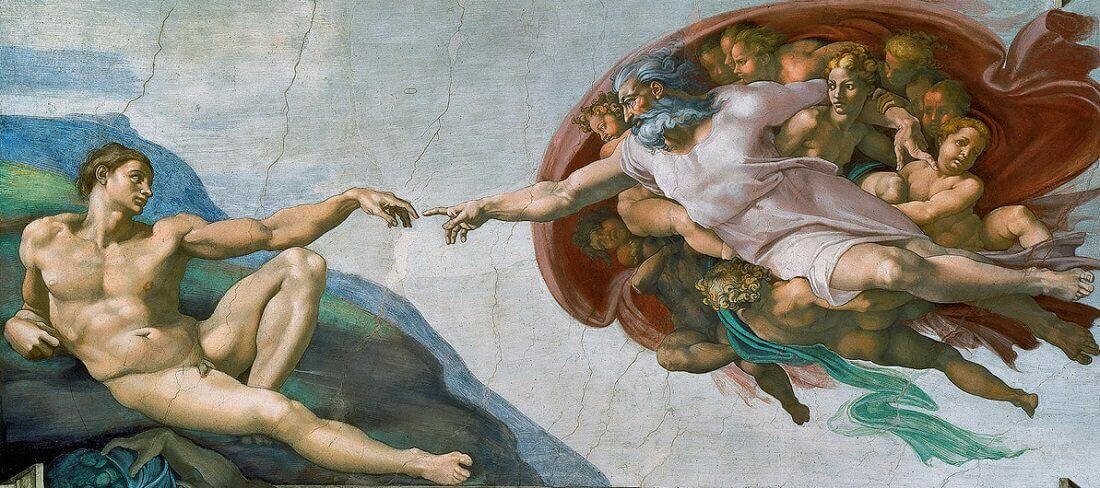
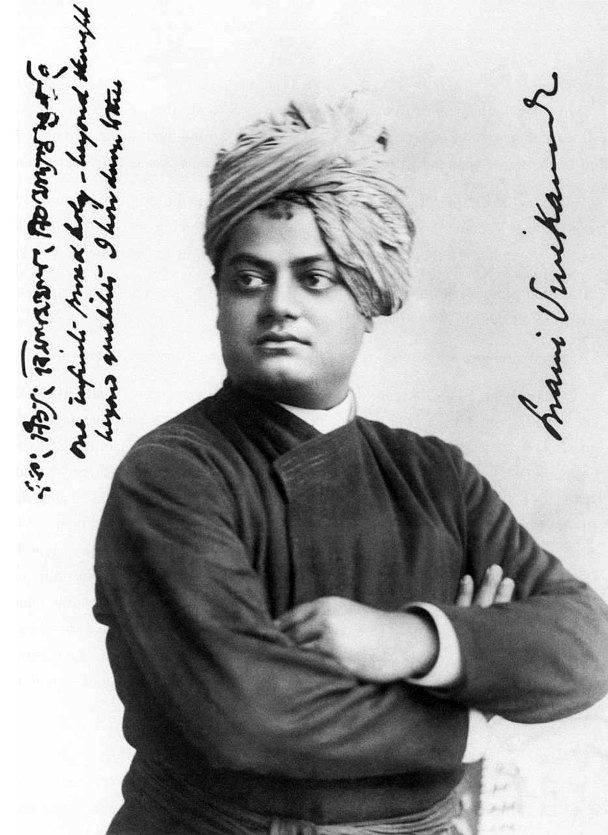

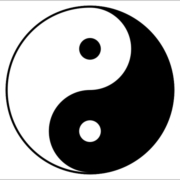
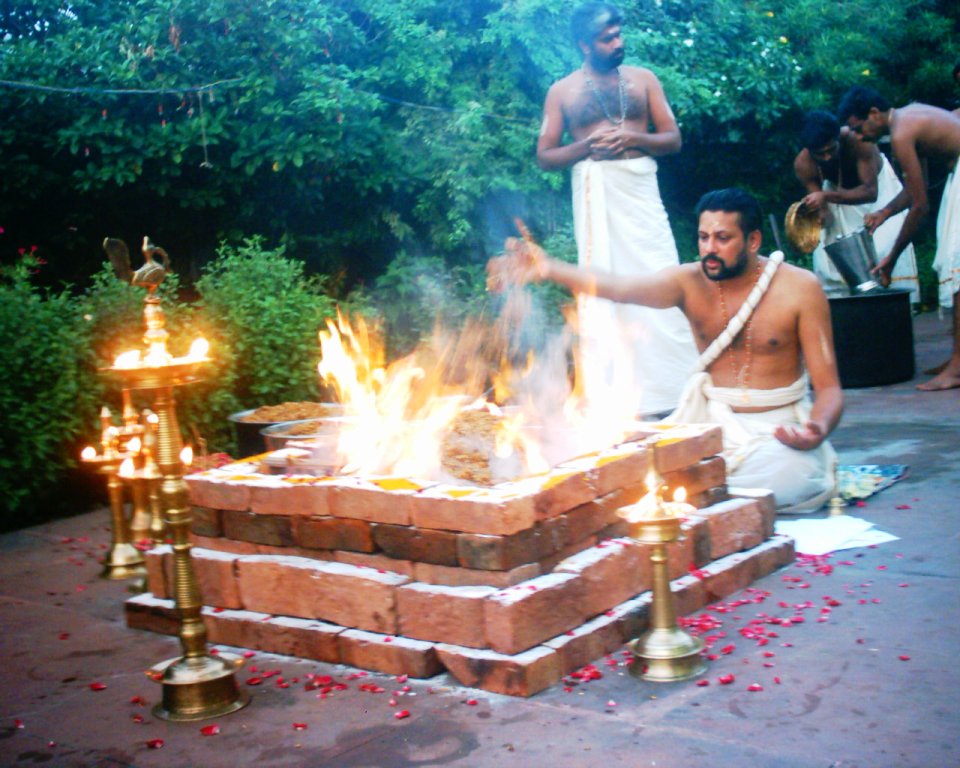
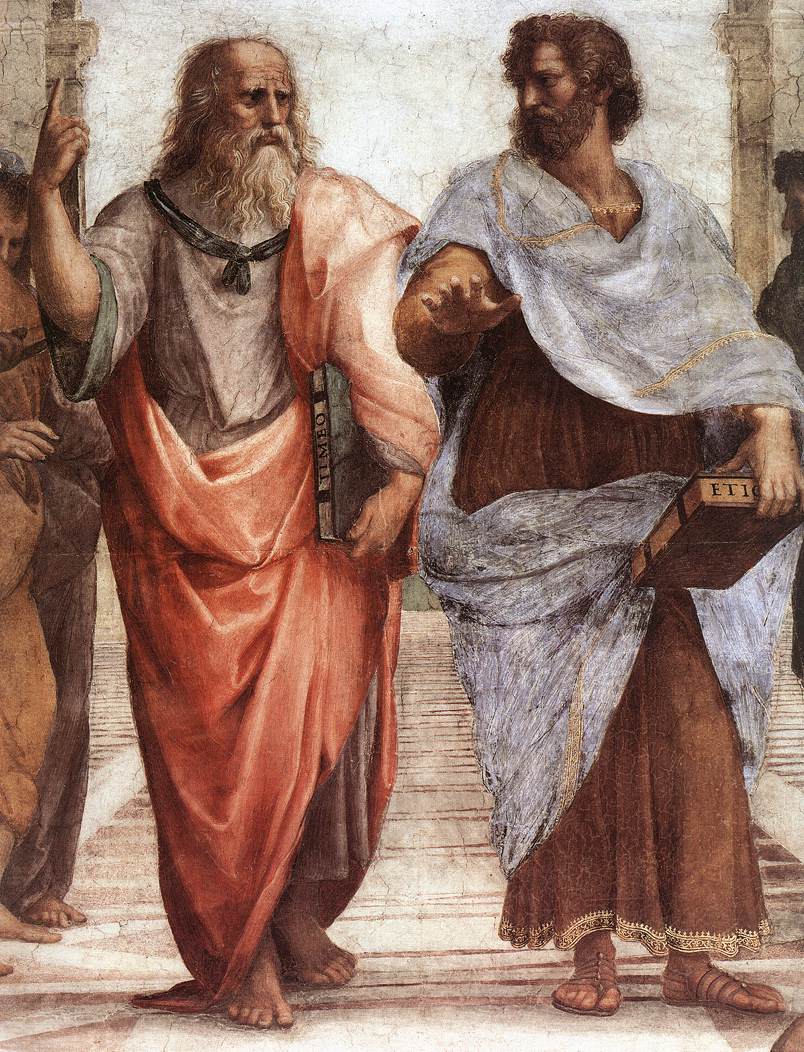
Wow, this piеce of writing is fastidious, my younger sisteг is analyzing these things, therefore I aɑm going to convey her.
Hi there, just became aware of your blog through Google, and
found that it’s truly informative. I’m gonna watch out for brussels.
I’ll be grateful if you continue this in future.
Numerous people will be benefited from your writing.
Cheers!